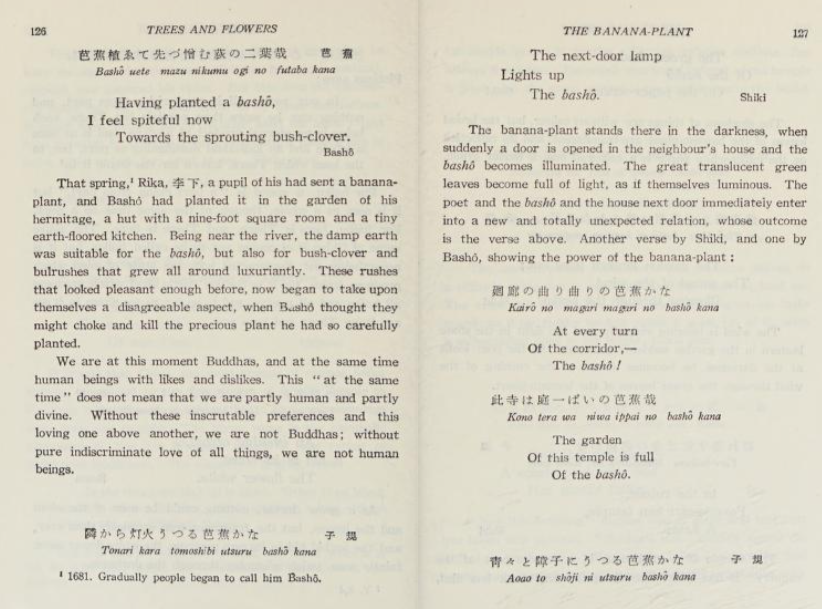Anyone who knows me knows I am a huge fan of the Internet Archive. With its millions of books scanned and available for borrowing online, the Archive is the most accessible research library in the world. You can search the text contents of those millions of books, and then view the results page by page in context. Just go to Archive.org and create your free account to borrow all those books. Only one person at a time can borrow a book (just like a physical book in a physical library; it's called "Controlled Digital Lending"), but it's pretty rare for me to want to borrow a book that someone else is reading at that moment, and whenever that happens, it makes me happy to know I share an interest with that mystery person.
So, one of the things I will be doing with these posts is highlighting books you can find at the Internet Archive that are relevant to working on haiku, and I was delighted to find that all FOUR volumes of Blyth's Haiku series is available. Here are the links: Blyth's Haiku: Eastern Culture I, Haiku: Spring II, Haiku: Summer/Autumn III, and Haiku: Autumn/Winter IV. The Archive also has Blyth's History of Haiku I (up to Issa) and History of Haiku II (Issa up to modern times).
These books are an amazing resource; I especially like the way Blyth provides the Japanese text with romanization. Here is a screenshot from a 2-page spread in Haiku: Autumn/Winter IV (notice how that link goes directly to the page in the book; the Archive makes it easy to share page-specific links):

You can find out more about Reginald H. Blyth at Wikipedia. Born in 1898, Blyth arrived in Korea as an English professor in 1925, when Korea was still under Japanese rule. That is where Blyth began his studies of Japanese and Chinese, and it is also when he began studying Zen Buddhism. In 1940 he moved to Kanazawa, Japan, the home of D. T. Suzuki, who was one of the most important scholars in introducing English-language readers to Buddhism and to Zen Buddhism in particular. During the war, Blyth was interned as an enemy alien, and he then stayed in Japan after the end of the war. Blyth lived the rest of his life in Japan; he died in 1964. He was a prolific author! I first got to know Blyth through his work on humor in Asian traditions, including the humorous dimensions of Zen Buddhism. You can find other books by Blyth at the Internet Archive.
Given that my own interests in haiku are very much connected to my interest in Zen Buddhism, I was so glad to discover that these books by Blyth are available to everyone at the Archive. I'm always more motivated to write about books that I know other people can access, so I will definitely have more to say about Blyth and his work in coming posts.